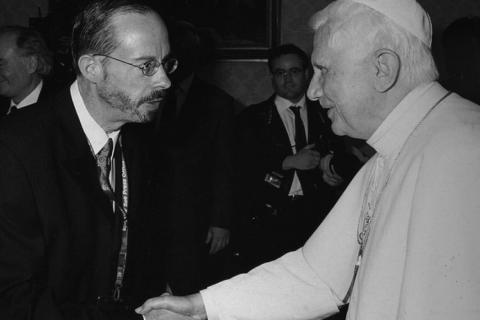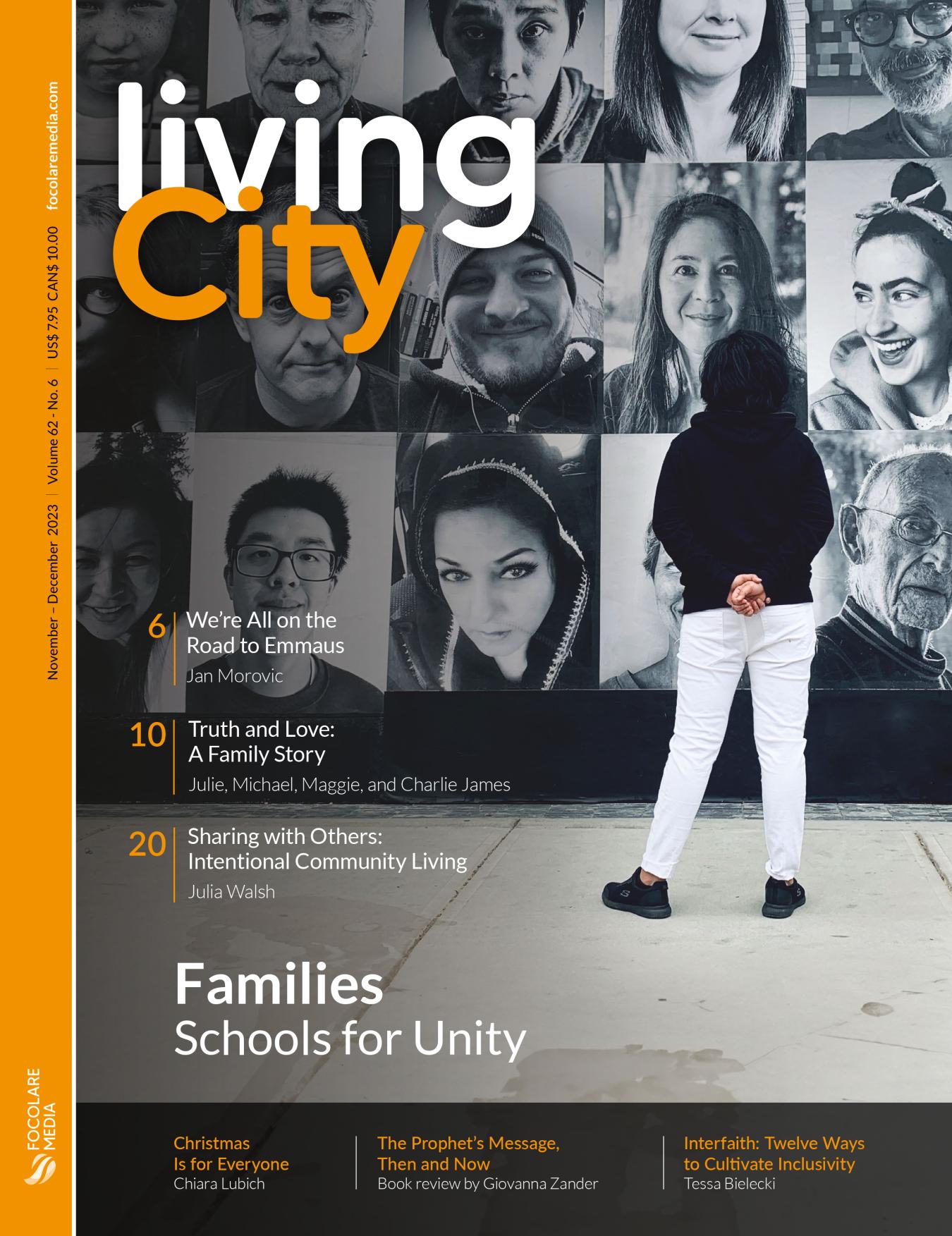
Photo by Ryoji Iwata on Unsplash
“How do we find signs of God’s presence in the midst of secular society?”
This is not an easy question in the light of so much troubling news that we hear lately. The Church has come to realize that the world is no longer the faith-friendly place it once was.
We as the people of God once again must adopt a “mission mindset”—going out into the world with the message of Jesus, loving God and neighbor. We must find that love of Christ in our hearts so we can share it in word and action with everyone we encounter.
“Secular society” can be defined as one relating to worldly things or to things that are not regarded as religious or sacred. However, this does not mean that God is not present. Did we not learn in our early religious education classes that “God is everywhere”?
God has not abandoned us. God is that still, intimate voice that calls out to us and to our world. We are asked to listen for that voice, sometimes to be that voice, and to be a light in the darkness and bread broken for others. When we seek God, we will find him even in places we do not expect.
On the way to pick up my grandsons at their school, I pass by a public park where many homeless folks camp out. It is not unusual to see bicycles, grocery carts piled high with all the belongings that someone has under a tree, or someone sleeping on the grass.
One particular day, I saw a small group of folks helping to push their friend in a beat-up wheelchair. They were carefully maneuvering him to a shady spot. There was genuine joy in several of their faces. I don’t know if it was because they were able to help, or because this was someone they had not seen in while and were reconnecting with.
In that moment, I saw God in the actions and in the faces of people who cared for each other and wanted to help one another. Just as God cares for each of us in our difficult times, he walks with us, accompanies us so he is present in a world that doesn’t always acknowledge him.
Another way to see God’s presence in secular society is to look at sacrifices people make for one another. Our world seems to be moving more and more toward comfort, pleasure and looking out for ourselves. Jesus gave the ultimate sacrifice on the cross, his life for our salvation. When we make ourselves one with him through our sacrifices, we bring Jesus to our world.
When I see a spouse taking care of a sick husband or wife with such tender care and concern, I see Jesus. When I see older siblings care for their younger brothers and sisters so that mom or dad can have a little break, I see Jesus.
One of the most powerful sacrifices I’ve seen comes from the tragedy in Highland Park’s Fourth of July mass shooting. A father died shielded his two-year-old son from the bullets raining down on them. It is a story so tragic, but a sacrifice made out of love. We don’t know too much about this child’s mother and father, who both died, but we know they loved their child and were willing to die so that he might live.
Many daily experiences can discourage or encourage us. God is present right where he appears to be absent. This is his presence as Jesus Forsaken (see Mt 27:46, “My God, my God, why have you forsaken me?”). Chiara Lubich often spoke of Jesus Forsaken and his cry that can be found in our secularized world, in the division among Christians, etc.
“The movement has acquired a very rich experience that shows how human suffering, especially spiritual sufferings, is contained in this particular suffering of Jesus,” Chiara wrote in 2006.
“Aren’t those in despair similar to him? And those who are alone, who feel empty, disappointed or have failed, those who are weak? Isn’t every painful division among individuals, among churches, or between sections of humanity with contrasting ideologies, the very image of him?
“Isn’t the atheistic, secularized world, which has fallen into every aberration, an image of Jesus Forsaken who made himself sin—as St. Paul says—and who loses even the awareness of God?
“By loving Jesus Forsaken we find the reason and the strength not to flee from these evils and divisions, but to accept and embrace them out of love for him, and to then bring our personal and collective remedy.”
God is also present as Jesus Forsaken where he seems to be very absent: the war in the Ukraine, the growing polarization in our country, the aftermath of Covid. Let us remember that God is everywhere!
Let us remember that God dwells in our hearts as well as in the hearts of people of every race, creed, culture and situation. Let us always be alert and looking for God’s presence. You may be surprised where he shows up.
“For I know well the plans I have in mind for you—oracle of the Lord—plans for your welfare and not for woe, so as to give you a future of hope. When you call me, and come and pray to me, I will listen to you. When you look for me, you will find me. Yes, when you seek me with all your heart.” (Jer 29: 11–13)
Frère Roger Schutz of Taizé once spoke with Mother Theresa of Calcutta about the fact that the Gospel seemed to be dissipating from the wider culture. Mother Teresa had a simple response: “We must start over.”
In order to find God in the world around us as it is, we must simply look for him, expecting to find him. And we must tell others what we see.
Quotes are from “Our response to today’s collective and cultural night,” Chiara Lubich's message to the Volunteers of God in Budapest on September 16, 2006.












